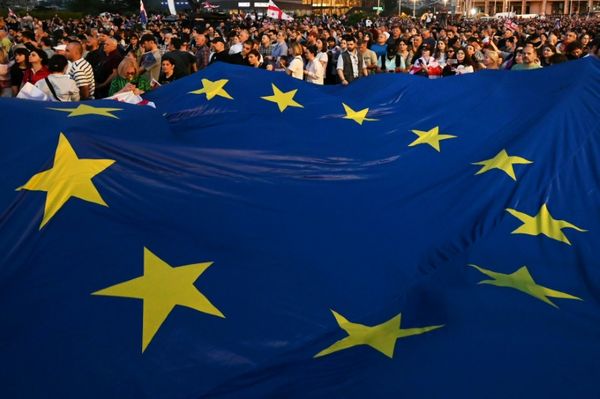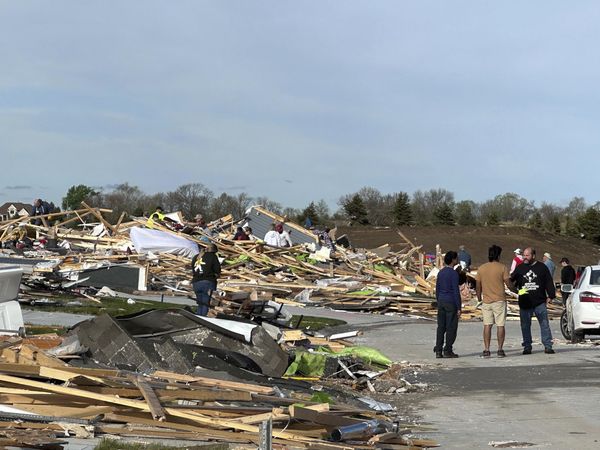
No-one can seriously doubt that in the West anti-Semitism is a prejudice with a special character. Its capacity to spread is extraordinary. It seems to propel itself semi-autonomously, has a suggestible quality, is meme-ish. The reasons are multiple and complex.
At its root, the continued existence of Judaism repudiates the idea that Jesus Christ is self-evidently the son of God. Judaism is thus a reminder that nothing in life is undifferentiated, or without an origin from something that is not itself. In the Christian West, Judaism is the locus of the doubt that shadows faith; it raises the possibility that Jesus was just a naughty boy. In modern times, Jewish involvement in finance capital made it a target from the 1870s, as such capital, debt and interest began to dominate people’s lives. Jewish scholarly traditions were suited to a modern world relying on knowledge, so the rapid progress of Jews as they entered civic life became a source of fear for many.
This content becomes a form. Because Jews are held to be a community that is everywhere, one stereotyped as travelling along the abstract channels of money, knowledge and power, so does anti-Semitism. It is as fluid and mobile as it accuses Jews of being in the exercise of power. But that special historical and cultural character of anti-Semitism does not give anti-Semitic acts or expressions a special moral character. Any given number of anti-Semitic acts and expressions is not worse than any given number of anti-Black or anti-Muslim or any other acts and expressions.
Yet that is the strong feeling one is getting from the current campaign around anti-Semitism. The Executive Council on Australian Jewry (ECAJ) claims there has been a 482% rise in anti-Semitic events comparing October 2023 with October 2022, based on its real-time tracking of incidents. Yet there is no material on the ECAJ website covering this statistic, so there is no way to know what incidents are and aren’t included. ECAJ has not responded to an email query regarding this.
This statistic was used in the “Say no to anti-Semitism” ad, signed by 600 people and published in major Australian newspapers. Yet not only is there no publicly available source for this, there is no breakdown of incidents by type.
That is particularly important because much of what is being claimed as “anti-Semitic” incidents are simply protest slogans and expressions. The slogan “From the river to the sea, Palestine will be free” has been repeatedly slated as inherently anti-Semitic. The slogan has multiple interpretations, the most significant being the view of the region as a multinational state, as was the Ottoman-controlled area of Palestine before World War I. To claim it as necessarily anti-Semitic requires suggesting that it can only be interpreted as calling for the establishment of an Arab state called Palestine.
Thus it is not merely a statement that is being objected to as a public “anti-Semitic” act, but one particular interpretation arising from it. That would seem to attach prejudice to the hearer, not the speaker. Is the speaking of this slogan — or its expression on a poster — being counted as an anti-Semitic act? If so, there is no wonder that a 482% figure has been got.
The suggestion that such a slogan is “anti-Semitic” goes with a wider sense of redefining “anti-Semitism” to include political statements that the hearer or witness claims cause hurt or trauma simply because they disagree with them or find them disdainful or indifferent to their suffering.
Thus the reaction to several actors in the Sydney Theatre Company’s performance of The Seagull donning keffiyehs for the encore as a pro-Palestinian gesture. Whether or not this is a good idea, it is the simplest possible political statement by a few actors in a large, multi-stage company. Yet it has been sufficient for two STC foundation board members, Judi Hausmann and Alex Schuman, to resign. Hausmann told the STC she needed “allyship, as well as friendship, at a time when my Jewish community is under serious threat”.
This is the tenor of much of the objection to pro-Palestinian protest, and it’s a new one: that the public statement of vigorous comment on an issue is not objected to because it is abhorrent or inciting violence, but simply because it causes internal hurt or trauma. This is Zionist groupings taking up the changed notion of a public sphere based on psychological impact and a broad sense of “safety”, something that started on the progressive side and which has proved very counterproductive, limiting their power to bite back at claims for it by the right.
This transformed idea of the public sphere is being deployed for strategic purposes. Five families of hostages taken by Hamas are, or were, in Australia on a trip sponsored by the Israeli government. Last week there was a protest against the destruction of Gaza in the lobby of their hotel. It occurred around the time that the decomposed bodies of numerous babies were discovered in the Al-Nasr Children’s Hospital, one that Israel Defense Forces troops had forced to be evacuated at high speed.
This pitiful sight flashed across Western news screens and was then forgotten. Australian commentators on the hotel protest did not even bother to connect it to the blood-spattered dolls the protesters displayed. Instead, they focused solely on the hurt and possible fear that some of the hostage family visitors might have felt.
One can understand a certain apprehension and caution. But this visit by the families was a political act, deploying their own awful personal situation to lobby a foreign government. Yet the news and the rush of condemnation constructed their plight as apolitical, purely human, thus doing the advocacy work for the Zionists. It simply deepened the sense that the more concern given to the impacts of Israeli and non-Israeli Jewish internal emotional states, the less is given to the impacts on Palestinian bodies, until the equation is absolute: Jewish people’s feelings matter to an open-ended degree, Palestinians’ life or death, their mutilation and evisceration, counts for nothing.
In relation to this phenomenon, stemming from a mix of cynical calculation and contemporary emotivism crossed with everyday racism, one must reassert, once again, the pluralist principle: a public sphere is only viable if participation in it assumes a reasonable robustness of the persons taking part. If conduct is calibrated to the least robust person participating, and/or emphasises the psychological effect of words rather than their role as communicating argument, the possibility of a public sphere collapses.
The Gaza issue has seen a magnificent crossover in the arguments. Many of the pro-Palestine left would have been the ones arguing for “hate speech” designations around “gender critical” remarks on trans issues. Some of those people now argue that the atrocious Hamas raid counts as mere resistance, and that Zionism is fascism.
But the right has been even more outrageously absurd. Gleefully, it has taken up the position of people they used to call “snowflakes”: that public speech should be shut down because it is hurting the feelings of Jewish people witnessing it. This has extended to whining about the “hurt” caused by something as simple as high school students chanting “Allahu Akbar” — “God is Greater” — the most general religious statement of affirmation. At the root of that attitude is that nothing should be said at all, which might have an emotional impact on some members of a preferred group.
Many Australian Zionist Jews will respond that the impact in question began with the terrorist slaughter of more than a thousand Israeli civilians, tourists and migrant workers by Hamas and fighters and irregulars. Fair enough. I don’t blame Israeli citizens for wanting to lay waste Gaza, whatever the political set-up. Nor do I blame Australian Jews with connections to the people and the area for feeling similarly. But what is overwhelmingly being objected to here is any political speech that raises the basic questions of how Gaza and Israel came to be as they are.
And that is the process whereby the cultural and historical distinctiveness of anti-Semitism has been rolled over into a moral distinctiveness, special pleading on a grand scale. This assumption in Western societies restages the colonial assumptions present from the start of Zionism: that the creation of a Jewish Middle Eastern state, constructed as a return through a claim to continuity, becomes a narrative of triumphant becoming for the people involved, while the Palestinian Arabs are constructed as an undifferentiated mass, to be treated well or badly but always to be a subject rather than an object.
There is unquestionably real anti-Semitism about — in graffiti, street abuse and more. Most of the protest against Israel’s mass killing of Gaza has been scrupulously moral. Jewish activists have been prominent within it. But there’s been some non-European pre-modern anti-Semitism expressed. There’s been some old-skool neo-Nazi opportunism (nu-skool neo-Nazis are mostly pro-Israel). Sections of the radical left did not face the full horror of the Hamas attack, retreating to obfuscating abstraction and the discourse of victimhood rather than oppression to avoid facing the question of how you relate to an act of deliberate radical evil, designed to be such, to assert freedom.
That will matter more if “Deakin University Queers for Palestine” acquires a bomber-command air force. Until then it is very secondary to opposing the senseless slaughter. This is especially so as the destruction of Gaza has resumed, with at least 700 Palestinians killed in the first 24 hours based on an incident that resulted in no IDF casualties. Both sides have accused each other of violating the ceasefire. In some people who are not normally anti-Semitic, frustration at the monstrous disdain for Palestinians and the self-satisfied and essentially racist simultaneous deep concern for feelings has caused their own thoughts to regressively attach to the memetic floating character of anti-Semitism — its cultural availability as a belief in conspiracy — and thus spread the affliction further.
This touchfire potential unquestionably puts a greater than usual responsibility on pro-Palestinian protest organisers to think very carefully about how they organise their protests. They have to be somewhat better policed regarding anti-Semitic posters, such as the vile graphic which shows a Star of David being thrown in a rubbish bin accompanied by slogans about cleaning up the world. These posters need to be torn from people’s hands. They need to be expelled from marches. Radical movements have always had to have a method to deal with “right adjacency” on certain issues.
Genuinely anti-Semitic manifestations need to be investigated and prosecuted. But these must reach a high and explicit standard of targeting to require such. In a multicultural, multi-values society we are all going to have to put up with things we find upsetting, disturbing, ugly, or that express partisanship in a violent world.
The demand by Zionists that anything possibly hurtful to many Jews be censored sits ill to many of us, when what has been happening in Gaza is of a level of violence rarely seen in recent times. Crucially, whatever one feels about potential justification for that violence, surely opens up the right of those opposing it to be forthright in their words. If you’re making the argument that the high-tech killing of thousands of civilians is “regrettable but justified”, people have a right to call you some fairly terrible things.
Zionists, gentile and Jew, need to understand that the special character of anti-Semitism, when taken as having a special moral character, renders invisible and secondary the wealth of specific, everyday racism that people of various non-white backgrounds go through every day. These are racisms that can’t be attached to any heroic theme, whose victims have less social power to campaign against them.
Zionist groups also need to understand that between 30% and 40% of us are non-white now, depending how you frame it, and many people will be wondering exactly why one form of discrimination creates a wholesale social mobilisation where others are merely given lip service.
Jews were once “the other” to an Anglo-Celtic society, both inside and outside it. They’re now largely inside, and the narcissistic twang of many complaints of anti-Semitism evokes Mel Brooks’ arch comment — “Tragedy is when I cut my thumb; comedy is when you fall into an open sewer and die” — as a plan of action. In a multi-ethnic, multi-faith society we all have to learn to get along, by not getting along, in a fluid and mobile society. We have to challenge fantasies of social unity for our own good — and because they are, among other things, legitimising high-tech slaughter half a world away.







